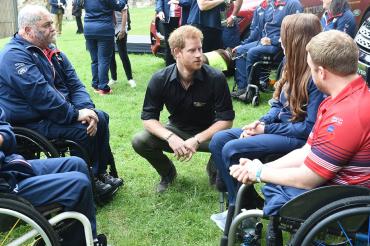Physical activity should be accessible to all amputees: U of T expert

Published: September 18, 2017
Many amputees want to be physically active to regain their sense of independence, but a number have grander ambitions – to become elite athletes performing on the world stage.
And Dr. Steven Dilkas, an assistant professor at University of Toronto’s Faculty of Medicine who specializes in amputee rehabilitation and sport medicine at West Park Healthcare Centre and the Canadian Sport Institute Ontario, says those dreams are possible with the specialized prosthetic devices now available.
Dilkas writes in this edition of Doctors' Notes, the Toronto Star's weekly column created by medical experts from the U of T, that “we’ve come a long way from the prosthetic technology used by Terry Fox to inspire a nation."
Amputees can now get sophisticated technology such as prostheses with computerized knees and ankles, or hand devices that help with throwing a baseball or holding a hockey stick.
Dilkas, who will be the co-chief medical officer for this month's Invictus Games in Toronto, writes that there are more and more international competitions aimed at people with disabilities participating at a high level of sports.
But, he writes, accessibility can be a problem, with literature suggesting "that 11 to 61 per cent of people with lower limb amputations participate in sports and/or physical activities." Older patients often have a hard time getting these services.
There is an answer: Dilkas said experts need to do a better job of educating the public, front-line health-care professionals and politicians about disability and how to help amputees.



